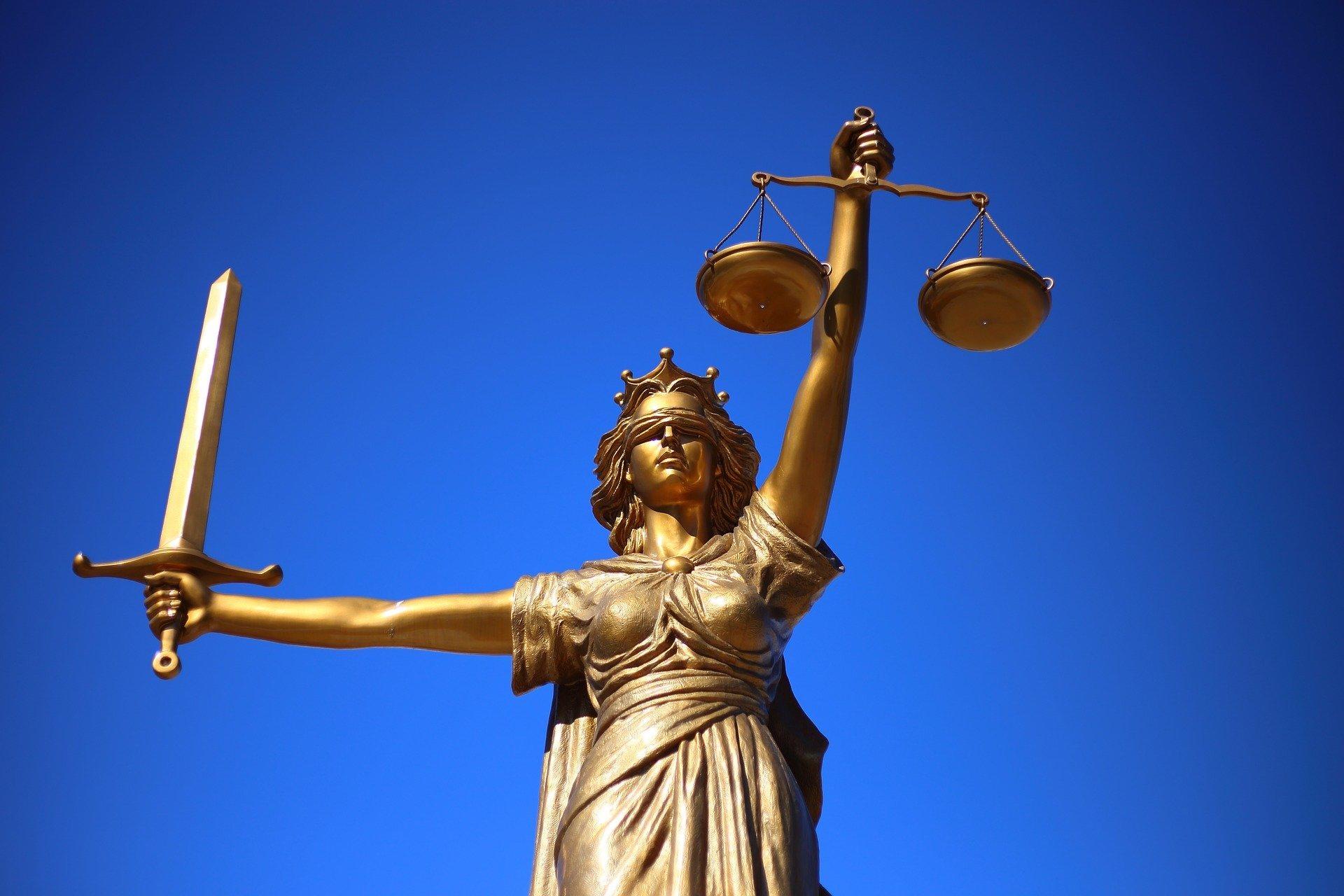There is likely no doubt in anyone's mind that technology has changed the world as we know it. Information can travel as quickly as a few taps on a keyboard or smartphone, and humans have the capacity to be more informed about the world than ever before.
While there are arguably many negatives about the rise of digital technology and artificial intelligence (AI), few people can challenge the fact that technology has made it easier for nearly anyone to access information. In the context of understanding the law, the impact of information technology has been particularly powerful as historically marginalized and racialized groups can readily access legal resources.
This article is all about how digital technology is transforming the legal profession for both citizens and legal professionals. We will explore the ways in which technology has contributed to creating more equitable outcomes for Black, Indigenous, and other equity-seeking groups.

How has Legal Tech Made the Law more Accessible?
Digital technology has made many useful tools and resources available that make the Canadian legal system more comprehensible to diverse communities. Let's explore a few tools and resources!
Artificial Intelligence
Researching large documents and sites with large amounts of information can be daunting for anyone looking to understand law-related texts, such as contracts and policies. Artificial intelligence (AI) tools like Co-Pilot or Chat GPT make it easy to get a free, quick, and clear summary of information.
Tools like AI should also be used with caution - while they can provide a great introduction to literally any topic, it is good to cross reference your learning with other reputable resources and legal professionals.

Online Translation Tools
Free and easy to use tools like Google Translate and Microsoft Translate are game-changing for newcomer communities who are still in the process of acquiring English. It goes without saying that "legalese" can be difficult to read even for experienced English speakers, so being able to translate new vocabulary into another language makes a critical difference for English learners that need to navigate the law.
Conversely, online translation tools can make it easier for legal professionals to communicate with their clients, especially when both parties do not speak the same language. Keep in mind, however, that translation tools may not always be accurate in their interpretation, so for important documents and meetings it is worthwhile to seek the help of a qualified interpreter.
Indigenous lawyers are advocating for greater recognition of their unique perspectives and experiences, contributing to a more culturally competent legal system.
Online Meeting Platforms
Applications like Google Meet, Zoom, Microsoft Teams, have made it easier than ever to connect with others. For communities that live in remote areas, such as many groups of Indigenous people, being able to access services for consultation or counsel becomes much easier without a lengthy commute.
Video meeting platforms are also ideal for people that are balancing family responsibility or multiple jobs. Having the ability to meet remotely can be much easier than having to find a sitter or take a day off from work.
Governments and Non-Governmental Organizations have also implemented virtual services that connect underserved communities to legal experts through phone or video calls.
Legal Information on the Internet
Platforms and websites dedicated to providing legal support and information from Legal Aid, government portals, an non-profits have made it easier for people to independently research the legal system and individual charter rights. Analyses and summaries from other users can also be helpful in understanding unfamiliar content.
Online Dispute Resolution
Platforms and mediators are available for those who wish to resolve disputes online and avoid time-consuming and costly court proceedings. Disputing parties find such services particularly beneficial, especially when they are geographically distant.

Community Networks and Advocacy Groups
Social media platforms have made it easy for people with similar issues to connect, which makes knowledge-sharing and collective action around legal issues and disputes much easier. Such platforms also facilitate the mobilization of grassroots organizations, so they can advocate for policy changes that benefit marginalized groups.
Crowdfunding platforms also serve an important role in helping individuals and groups to fund legal action against governments and organizations.
Digital Legal Education
Massive open online courses have made it easier than ever to find reputable sources for information about legal rights and information about navigating the legal system. Educational empowerment helps people to be more proactive in and informed when it comes to legal matters.
How have Digital Platforms Supported Communities Impacted by Climate Change and Environmental Pollution?
One powerful example of the ways the digitization of legal knowledge, law, and policy has impacted communities is the increase in climate litigation from various community and activist groups. Digital platforms have made federal government policy more accessible than ever before, so that communities can easily access law and policy and hold companies and even local governments accountable for following environmental regulations, such as CEPA.
What is the Canadian Environmental Protection Act (CEPA)?
CEPA is legislation that aims to support sustainable development and economic growth. It provides a framework for protecting the environment, managing pollutants and toxic substances that are released through activities like manufacturing, farming, and land development.
CEPA has been updated multiple times since its inception in 1999, as the economy has changed.
Main Objectives of CEPA
- Prevent Pollution: a key CEPA priority is preventing pollution at the source rather than managing impact.
- Manage Toxic Substances: CEPA regulates the assessment, control, and elimination of substances that have been deemed toxic to humans and the environment.
- Human Health and Environment Protection: CEPA aims to protect ecosystems and and the well-being of Canadian Citizens.
- Sustainable Development: CEPA promotes best practices that support economic growth with environmental protection, securing resources for future Canadians.

How have Community Groups Held Organizations Accountable to Climate Laws?
One driving force in the area of climate accountability are environmental activists and equity seeking communities that directly feel the impact of pollution and climate change. Indigenous groups and organizations like Ecojustice and Jeuneusse have been taking corporations and provincial governments to court for climate justice.
Globally, there were more than 2,100 climate-change-related court cases filed at the end of 2022 - more than double the total from 2017.
Example of Climate Litigation: Mathur v. Ontario
In this 2019 case, Ecojustice helped seven youth environmentalists to file an application against the province of Ontario for not adequately addressing the risks associated with climate change in the Cap Trade and Cancellation Act (CTCA).
In their filing, they asserted that the CTCA violated sections 7 and 15 of the Canadian Charter of Rights and Freedom, which focuses on the Canadians' rights to life, liberty and security and the person, and a right to equality. The existential threat posed by climate change, in their view, infringed their rights as did the the burden on younger Ontarians who would bear the burden of climate change.


Does Having a Diverse Legal Profession Provide more Equitable Access to the Law?
Technology and digital resources are just one way the legal system has been made more accessible, but are by no means a fulsome pathway to greater equity. Another factor that must be addressed is the importance of a diverse legal profession.
Why is it so important to have diversity in the legal profession?
Canada is known around the world for its multicultural society, with people coming from all over the world to settle in the country and become citizens. However recent statistics show that Indigenous people, women, members of the LGBTQ+ community, and racialized people are underrepresented in many areas of the legal profession.
Indigenous lawyers, for example, routinely face systemic barriers, limited access to mentorship, and have a complex connection with the Canadian legal system because of its deeply rooted foundations in colonial, Euro-centric values.
It's essential for the legal system to reflect the communities it serves to so that people feel represented and heard. Having diversity in the legal profession ensures that the the field is enriched by the unique knowledge that comes from lived experiences of people with different intersected identities. Seeing diversity in the legal system also builds public confidence in the justice system, so they feel they will be served fairly and equitably.
Law 25, legislated in Quebec, establishes protections for the personal information of Quebec citizens by introducing mandatory breach reporting, data minimization requirements, and penalties for non-compliance.
Organizations Encouraging Diversity and Inclusion in the Legal System
A variety of Canadian organizations have initiatives in place to support more diversity in hiring practices in the legal professions. Here are just a few of the groups working to transform the legal field.
The CBA offers tools and professional development opportunities for facilitating diversity and inclusion in law firms. Their site states a clear commitment to diversity and inclusion in the operational policy.
FACL is a group made up of Asian Canadian legal professionals and law students. They promote social justice and inclusion with other equity-seeking groups, support professional and community development, and provide career support.
The IBA is a professional network and support for Indigenous lawyers and law students. They host an annual conference, promote the advancement of legal and social justice for Indigenous people, and foster awareness of social issues impacting Indigenous communities.
BLAC is an organization that addresses systemic anti-Black racism, providing free legal services, engaging in research projects, and developing public legal education resources.

In order to succeed, the legal industry needs to get off the dime and embrace diversity.”
Roger Meltzer
Is it Important for Citizens and Organizations to Understand Cybersecurity Laws?
With so much happening online, it is critical to also address the need for organizations and communities to understand cybersecurity legislation.
Canada's federal government has put a number of regulations and laws in place to protect the privacy and information of its people. Unfortunately, many Canadians have become vulnerable to scams, identity theft, and other dangerous crimes. Learning about cybersecurity in Canada is important to anyone that regularly participates in digital networks and economies - particularly business professionals and consumers
Thankfully most regulations such as PIPEDA are posted online for people to peruse and utilize as they see fit!
What is PIPEDA?
PIPEDA is an acronym for Personal Information Protection and Electronics Document Act. This act was legislated by the federal government. PIPEDA sets the rules for how private companies and organizations collect, use, and disclose personal information for profit and commercial activities in Canada.
Information about PIPEDA can be found at the website of the Office of the Privacy Commissioner of Canada (OPC).
What are The Main Principles of PIPEDA?
Accountability: Organizations must appoint someone to be accountable for its compliance with fair information principles, and are responsible for any personal information under its control.
Identifying Purposes for Data Collection: The reasons or purposes for which personal information is being collected must be identified by the organization before or at the time it is being collected.
Organizations must also only collect personal information for the purpose it has identified. Information must be collected fairly and lawfully.
Consent: The knowledge and consent of the individual are required for the collection, use or disclosure of personal information, with some exceptions. In other words, individuals must voluntarily disclose information and should always refuse when they do not want to share their contact information.

Limiting use: Personal information can only be used for the purposes for which it was collected, and must only be kept as long as required to serve those purposes - unless the individual consents otherwise or it is required by law.
Accuracy and Safeguards: Personal information must be as accurate, current, and complete as possible to properly satisfy the purposes for it is used. Personal information must be protected by appropriate security.
Openness: Organizations must make information about its policies and practices for the management of personal information publicly and readily available.
Access: An individual must be informed of the existence, use, and disclosure of their personal information, must be given access to that information, and be able to challenge the accuracy of the information and have it amended as they see fit.
Challenging Compliace: Individuals shall be able to challenge an organization’s compliance with the 10 PIPEDA principles. Challenges should be addressed to the organization’s compliance officer
How do I Pursue a Legal Career in Equity, Sustainability, or Cybersecurity?
With so many exciting new fields in the legal profession, you may be wondering how to get started. The first thing to do is earn your Juris Doctor (JD) at an accredited Faculty of Law in Canada in a program that emphasizes your program of interest.
In some institutions you can combine your bachelor's degree with a JD, so you can start in the workforce as soon as possible. Below is a list of unique programs across Canada that may help you to achieve your career goals.
If you are looking for academic support for preparing for an LSAT exam or your coursework, check out Superprof Canada. Superprof has dozens of experienced and qualified tutors that can help you to excel in your postsecondary studies, even in law. Explore the site to find a tutor that is right for your needs.
Understand why legal frameworks are essential for integrating sustainability into corporate governance.
Final Thoughts
The internet has made it easier than ever for individuals to educate themselves about the legal system, laws, policies, and processes in Canada. The accessibility of information and legal services have been particularly empowering for historically marginalized groups that are underserved by justice and overrepresented in Canadian prisons and jails.
Digital platforms and resources have made it much easier for advocacy groups and grassroots organizations to gather, mobilize, exchange knowledge, and take legal action. This is particularly true in the context of climate litigation, where communities negatively impacted by global warming and pollution are leveraging digital platforms to raise awareness and hold companies and governments accountable.
Whenever using digital resources, however, it is important to understand national and provincial cybersecurity regulations so you know your rights.
For those passionate about equity and pursuing careers in the legal profession, there has never been a better time to learn and advocate. If you are looking to join the legal profession and work in areas like equity, sustainability, or cybersecurity, the options for learning are exciting and innovative.
Summarize with AI:






















